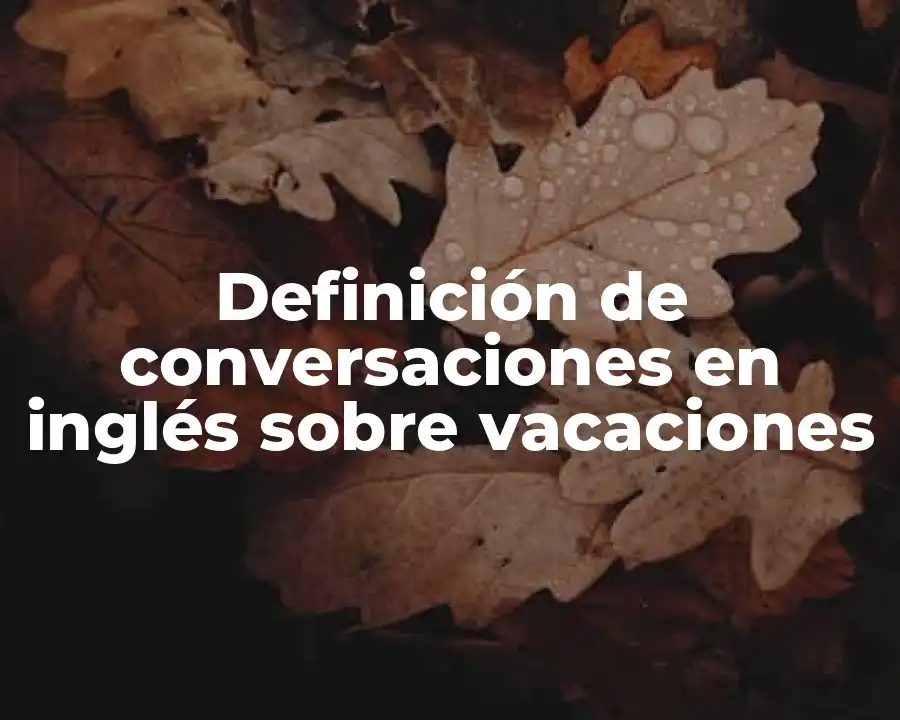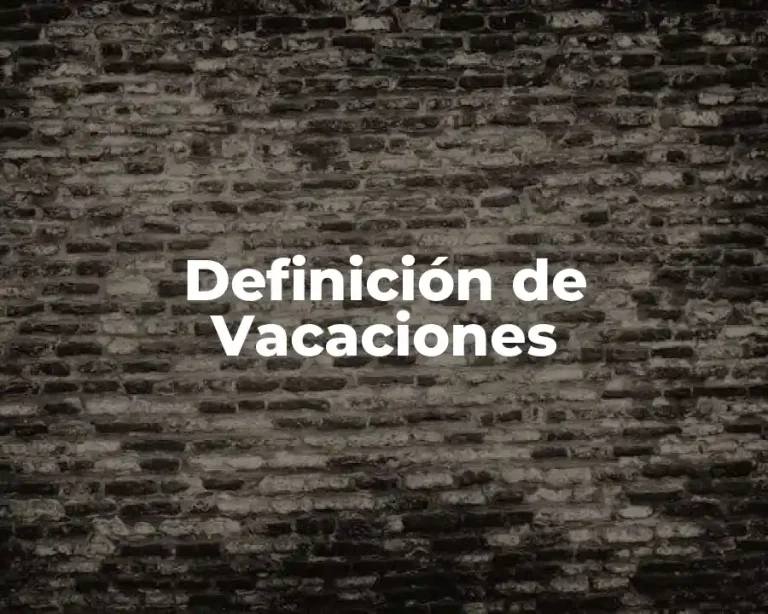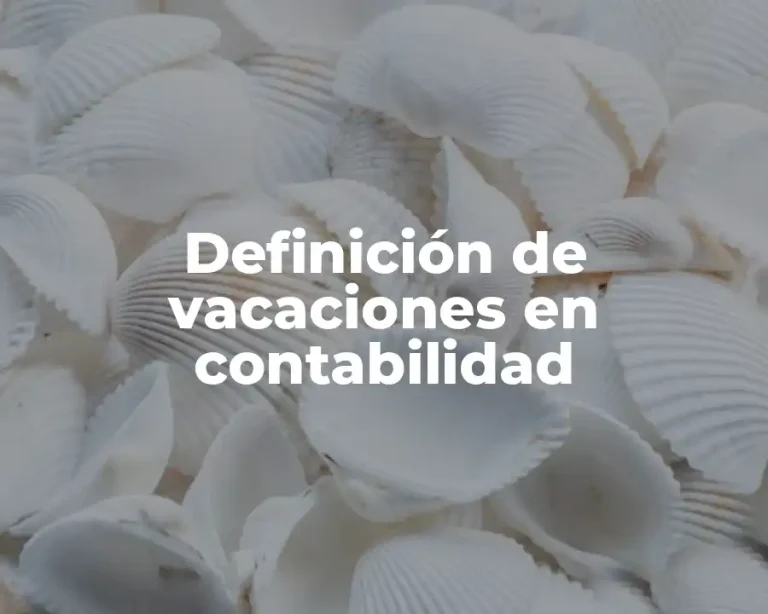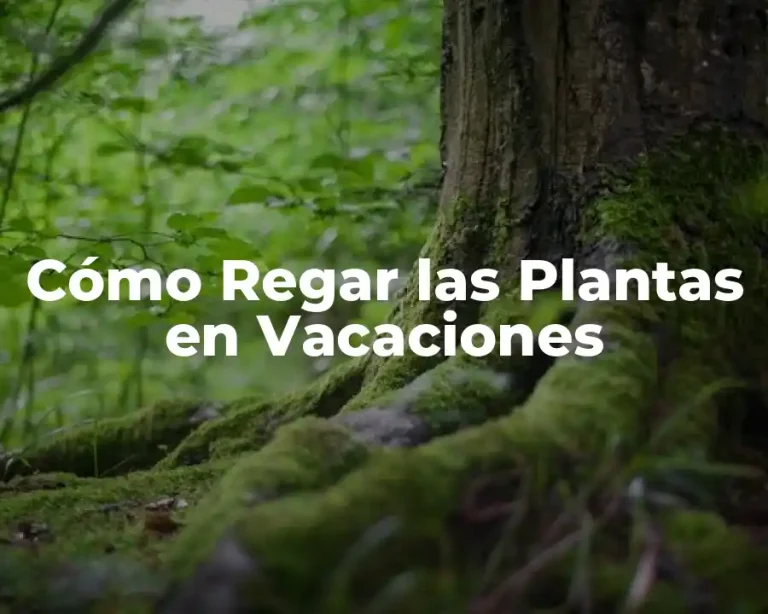Las conversaciones en inglés sobre vacaciones son un tema muy común en el contexto de los viajes y el turismo. En este artículo, exploraremos los diferentes aspectos de estas conversaciones y presentaremos ejemplos para que puedas practicar y mejorar tus habilidades en inglés.
Vacaciones, the best part of the year!
¿Qué es una conversación en inglés sobre vacaciones?
Una conversación en inglés sobre vacaciones se refiere a una charla informal o formal que se desarrolla sobre planes, excursiones y experiencias relacionadas con viajes y vacaciones. A menudo, estas conversaciones se llevan a cabo con amigos, familiares, viajeros o incluso con empleados del sector turístico.
When are you taking your next vacation?
Ejemplos de conversaciones en inglés sobre vacaciones
- Planning a trip: Hey, have you decided where you’re going on vacation this year? Yeah, I’m thinking of going to Europe. Have you ever been?
- Sharing travel experiences: What was your favorite part of your trip to Japan? Oh, definitely the food! I ate at some amazing restaurants.
- Asking for recommendations: I’m going to Paris soon and I was wondering if you have any recommendations for things to do and see. Absolutely! You have to visit the Eiffel Tower and the Louvre Museum.
- Discussing travel plans: I’m planning a road trip across the US and I’m thinking of stopping in New York City. Have you ever been? Yeah, I was there last year. It’s a great city, but be prepared for crowds.
- Sharing travel tips: I learned that it’s always a good idea to pack a portable charger for your phone when traveling internationally. That’s a great tip! I’ll definitely keep that in mind for my next trip.
- Talking about cultural differences: I’ve always been fascinated by the cultural differences between countries. What’s something that surprised you about a place you visited? I was surprised by how much food waste there was in some cities. It’s something that really struck me.
- Sharing travel stories: I had an amazing time in Thailand. The beaches were incredible and the people were so friendly. That sounds amazing! I’ve always wanted to visit Thailand. What was your favorite part of the trip?
- Asking for advice: I’m considering taking a cruise for my next vacation. Do you have any advice on what to expect? Yeah, I took a cruise last year and it was really enjoyable. Just be prepared for seasickness and make sure to pack accordingly.
- Talking about language barriers: I was visiting Spain and I struggled to communicate with some of the locals because of the language barrier. Do you have any tips for overcoming that? Yeah, I always carry a translation app on my phone and it’s been a lifesaver.
- Sharing travel news: Did you hear that a new hotel chain is opening up in our city? I’m excited to try it out on my next trip. Yeah, I saw that announcement. It’s always exciting to have new options for accommodations.
Diferencia entre conversaciones en inglés sobre vacaciones y conversaciones en español sobre vacaciones
Una de las principales diferencias entre conversaciones en inglés sobre vacaciones y conversaciones en español sobre vacaciones es el lenguaje y los términos utilizados. En inglés, por ejemplo, se utiliza el término vacation para referirse a un período de tiempo en el que se toma un descanso, mientras que en español se utiliza el término vacaciones.
In English, we use the word ‘vacation’ to refer to a break from work or school, while in Spanish, we use the word ‘vacaciones’.
¿Cómo se puede escribir una conversación en inglés sobre vacaciones?
Una conversación en inglés sobre vacaciones puede ser escrita de manera informal o formal, dependiendo del contexto y la audiencia. A continuación, te proporciono algunos consejos para escribir una conversación en inglés sobre vacaciones:
- Use a conversational tone: Try to write in a friendly and informal tone, as if you were having a conversation with a friend.
- Use simple language: Avoid using complex vocabulary or grammar, and instead opt for simple and clear language.
- Use relevant details: Include details about the trip, such as the destination, mode of transportation, and activities.
- Use quotation marks: Use quotation marks to set apart direct quotes or dialogue.
¿Qué son los beneficios de las conversaciones en inglés sobre vacaciones?
Las conversaciones en inglés sobre vacaciones pueden tener varios beneficios, incluyendo:
- Improved language skills: Engaging in conversations about travel and vacations can help you improve your English language skills, such as vocabulary and grammar.
- Cultural understanding: Talking about different cultures and customs can help you gain a deeper understanding and appreciation for the world’s diversity.
- Networking opportunities: Conversations about travel and vacations can lead to new friendships and connections with people from different countries and backgrounds.
- Inspiration and ideas: Sharing travel experiences and tips can inspire and motivate others to plan their own trips and explore new destinations.
¿Cuándo se pueden utilizar las conversaciones en inglés sobre vacaciones?
Las conversaciones en inglés sobre vacaciones pueden ser utilizadas en cualquier momento, incluyendo:
- Before a trip: You can use conversations about travel and vacations to plan and research your trip, or to share your excitement with others.
- During a trip: You can use conversations about travel and vacations to share your experiences and tips with fellow travelers, or to ask for advice and recommendations.
- After a trip: You can use conversations about travel and vacations to share your stories and memories with others, or to reflect on what you learned and experienced.
¿Qué son los ejemplos de conversaciones en inglés sobre vacaciones?
A continuación, te presento algunos ejemplos de conversaciones en inglés sobre vacaciones:
- I’m planning a trip to Japan and I was wondering if you have any recommendations for things to do and see. Absolutely! You have to visit the Tokyo Tower and the Tsukiji Fish Market.
- What was your favorite part of your trip to Europe? Oh, definitely the food! I ate at some amazing restaurants.
- I’m considering taking a cruise for my next vacation. Do you have any advice on what to expect? Yeah, I took a cruise last year and it was really enjoyable. Just be prepared for seasickness and make sure to pack accordingly.
Ejemplo de conversación en inglés sobre vacaciones en la vida cotidiana
Imagine que estás en un café con un amigo y él te pregunta: Hey, have you decided where you’re going on vacation this year? ¿Cómo responderías?
Yeah, I’m thinking of going to Costa Rica. I’ve always wanted to visit the rainforest and relax on the beach.
Ejemplo de conversación en inglés sobre vacaciones desde otro perspectiva
Imagine que estás hablando con un viajero que acaba de regresar de un viaje a Sudáfrica. Él te dice: I just got back from the most amazing trip to South Africa. I went on a safari and saw some incredible wildlife, including lions and elephants.
Wow, that sounds incredible! What was your favorite part of the trip?
¿Qué significa vacation en inglés?
El término vacation en inglés se refiere a un período de tiempo en el que se toma un descanso de trabajo o estudios. Es un momento para relajarse, disfrutar y descansar después de un período de tiempo intensivo.
Vacation is a time to relax, recharge and have some fun!
¿Cuál es la importancia de las conversaciones en inglés sobre vacaciones?
Las conversaciones en inglés sobre vacaciones son importantes porque:
- Improved language skills: Engaging in conversations about travel and vacations can help you improve your English language skills, such as vocabulary and grammar.
- Cultural understanding: Talking about different cultures and customs can help you gain a deeper understanding and appreciation for the world’s diversity.
- Networking opportunities: Conversations about travel and vacations can lead to new friendships and connections with people from different countries and backgrounds.
¿Qué función tiene vacation en una conversación en inglés?
El término vacation puede tener varias funciones en una conversación en inglés, incluyendo:
- I’m planning a vacation to Europe soon and I was wondering if you have any recommendations.
- Descripción: I just got back from a fantastic vacation in Costa Rica. I went surfing and saw some amazing wildlife.
- Interrogación: Do you have any tips for planning a successful vacation?
¿Cómo puedo aprender más sobre conversaciones en inglés sobre vacaciones?
A continuación, te presento algunas sugerencias para aprender más sobre conversaciones en inglés sobre vacaciones:
- Practicar conversaciones: Practice your conversation skills with native speakers, either in person or online.
- Watch travel shows: Watch travel shows and documentaries to learn about different destinations and cultures.
- Read travel blogs: Read travel blogs and articles to learn about different travel styles and tips.
- Use language learning apps: Use language learning apps, such as Duolingo, to learn new vocabulary and phrases.
¿Origen de la palabra vacation?
La palabra vacation en inglés proviene del latín vacare, que significa estar vacío o estar libre. El término se utilizó por primera vez en el siglo XIII para describir un período de tiempo en el que se dejaba de trabajar o estudiar.
The word ‘vacation’ comes from the Latin ‘vacare’, which means ‘to be empty’ or ‘to be free’.
¿Características de una conversación en inglés sobre vacaciones?
Una conversación en inglés sobre vacaciones puede tener varias características, incluyendo:
- Informal tone: Conversaciones sobre vacaciones suelen ser informales y relajadas.
- Vocabulary related to travel: Conversaciones sobre vacaciones suelen incluir vocabulario relacionado con el viaje, como hotel, plane, y beach.
- Descriptive language: Conversaciones sobre vacaciones suelen incluir descripciones detalladas de lugares y experiencias.
¿Existen diferentes tipos de conversaciones en inglés sobre vacaciones?
Sí, existen diferentes tipos de conversaciones en inglés sobre vacaciones, incluyendo:
- Planning a trip: Conversaciones sobre planificar un viaje, incluyendo preguntas sobre destinos, transporte y alojamiento.
- Sharing travel experiences: Conversaciones sobre compartir experiencias de viaje, incluyendo historias y consejos.
- Asking for recommendations: Conversaciones sobre pedir recomendaciones, incluyendo preguntas sobre lugares visitados y actividades.
¿A qué se refiere el término vacation en una oración?
El término vacation se refiere a un período de tiempo en el que se toma un descanso de trabajo o estudios. En una oración, el término podría ser utilizado de la siguiente manera:
I’m taking a vacation to relax and recharge after a long semester.
Ventajas y desventajas de las conversaciones en inglés sobre vacaciones
Ventajas:
- Improved language skills: Engaging in conversations about travel and vacations can help you improve your English language skills, such as vocabulary and grammar.
- Cultural understanding: Talking about different cultures and customs can help you gain a deeper understanding and appreciation for the world’s diversity.
- Networking opportunities: Conversations about travel and vacations can lead to new friendships and connections with people from different countries and backgrounds.
Desventajas:
- Language barriers: Conversaciones sobre viajes y vacaciones pueden ser difíciles de entender o seguir para aquellos que no hablan inglés con fluidez.
- Cultural differences: Conversaciones sobre viajes y vacaciones pueden ser influenciadas por normas y costumbres culturales diferentes.
- Time constraints: Conversaciones sobre viajes y vacaciones pueden ser limitadas por la disponibilidad de tiempo y la cantidad de información que se puede compartir.
Bibliografía de conversaciones en inglés sobre vacaciones
- Lonely Planet by Lonely Planet: A comprehensive guide to travel and vacation planning.
- The Travel Book by Lonely Planet: A collection of travel stories and experiences from around the world.
- Vagabonding by Rolf Potts: A guide to long-term travel and living abroad.
- The Art of Travel by Alain de Botton: A philosophical exploration of the art of travel and the human experience.
Arturo es un aficionado a la historia y un narrador nato. Disfruta investigando eventos históricos y figuras poco conocidas, presentando la historia de una manera atractiva y similar a la ficción para una audiencia general.
INDICE







